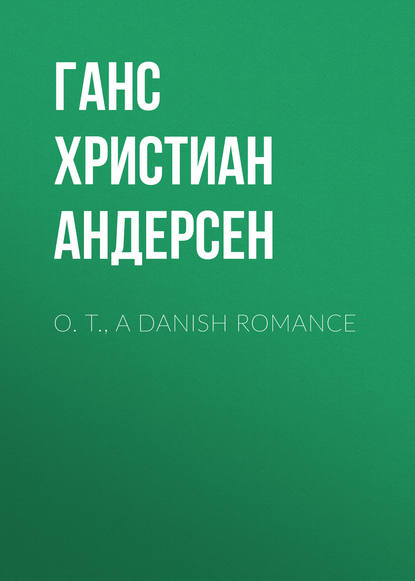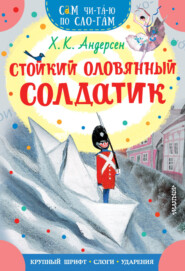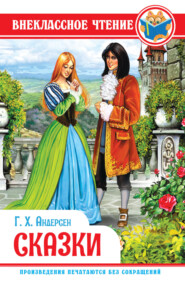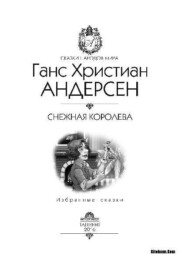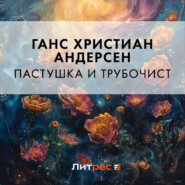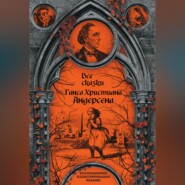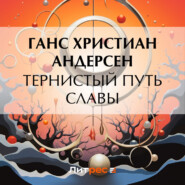По всем вопросам обращайтесь на: info@litportal.ru
(©) 2003-2024.
✖
O. T., A Danish Romance
Настройки чтения
Размер шрифта
Высота строк
Поля
“Only a weak attempt to imitate my sister!” said Louise, smiling.
“But there is not a single flower in the garland! What economy! And yet it is sweet!”
“How tasteful!” exclaimed Otto, examining the garland which Louise had laid.
All kinds of green leaves, with their innumerable shades, a few yellow linden-leaves, and some from the copper-beech, formed, through their varied forms and colors, a tasteful garland upon the white table-cloth.
“You receive a thistle and a withered leaf!” whispered Wilhelm, as Otto seated himself.
“But yet the most beautiful!” answered he. “The copper beech contrasts so sweetly with the whitish-green thistle and the yellow leaf.”
“My sister Sophie,” said Louise, “lays us each day a different garland;—it is such a pretty decoration! If she is not here we get none; that would have been the case to-day, but when I learned that Wilhelm was coming, and that we,” she added, with a friendly glance, “should have two other guests, I in great haste, made an attempt, and”—
“And wished to show how nicely it could be made without robbing your flowers!” interrupted Sophie, laughing. “In reality, I am very cruel! I cut all the heads of her favorites off. To-morrow, as a parody upon her garland of to-day, will I make one of green cabbage and pea-shells!”
“Madeira or port wine?” asked the Kammerjunker, and led the conversation from flowers to articles of food and drink.
“One feels one’s self comfortable here at the hall! Miss Louise cares for the body, and Miss Sophie for the soul!”
“And mamma bestows a good cup of coffee,” said the mother; “you must also praise me a little!”
“I give music after dinner!” cried Wilhelm; “and thus the whole family will have shown their activity!”
“But no voluntaries!” said the Kammerjunker; “no voluntaries, dear friend! No, a brisk song, so that one can hear what it is! but none of your artificial things!” A right proper blow on the shoulders was intended to soften his expression.
CHAPTER IX
“She sees if the cloth is clean and white
—If the bed has pillows and sheets;
If the candle fits in the candlestick....
“Modest she is, although you know
She makes the whole of the place;
And in she slips in the evening glow,
To light the room with her merry face “
—OEHLENSCHLÄGER
A quiet, busy house-fairy was Louise; the beautiful, fragrant flowers were her favorites. Good-humoredly she smiled at the raillery of her sister, quietly listened to each thoughtless jest; but if any one, in joke, touched upon what was holy to her soul, she was aroused from her calmness and attained a certain eloquence.
We will now become more nearly acquainted with the sisters, and on this account pass over to one of the following days.
An abode together of a week, at a country-seat, will often bring about a greater intimacy than if, throughout a whole winter, people had met in large companies in cities. Otto soon felt himself at home; he was treated as a near relative. Wilhelm related all he knew of the beautiful Eva, and Sophie discovered that she was a romantic character. Mamma pitied the poor child, and Louise wished she had her on the estate: an inn was, after all, no proper place for a respectable girl. They then spoke of the winter enjoyments in Copenhagen, of art, and the theatre. Louise could not speak much with them upon these subjects, although she had seen one play, “Dyveke:” the amiable nature of the actress had spoken deeply to her heart.
Several days had passed; the sky was gray; the young people assembled round the table; they were at no loss for a subject of conversation. All those who have brothers or sons who study well, have remarked how much they are especially fascinated by the lectures on natural philosophy and astronomy; the world, as it were, expands itself before the intellectual eye. We know that the friends, during the past summer, had participated in these lectures, and, like the greater number, were full of these subjects, from the contemplation of a drop of water, with its innumerable animalculae, to the distance and magnitude of stars and planets.
To most of us these are well-known doctrines; to the ladies, also, this was nothing entirely new: nevertheless, it interested them; perhaps partly owing to Otto’s beautiful eloquence. The gray, rainy weather led the conversation to the physical explanation of the origin of our globe, as the friends, from Orsted’s lectures, conceived it to have been.
“The Northern and Grecian myths agree also with it!” sail Otto. “We must imagine, that in infinite space there floated an eternal, unending mist, in which lay a power of attraction. The mist condensed itself now to one drop—our globe was one enormous egg-shaped drop; light and warmth operated upon this huge world egg, and hatched, not alone ONE creature, but millions. These must die and give way to new ones, but their corpses fell as dust to the centre: this grew; the water itself condensed, and soon arose a point above the expanse of ocean. The warmth of the sun developed moss and plants; fresh islands presented themselves; for centuries did a more powerful development and improvement show themselves, until the perfection was attained which we now perceive!”
“But the Bible does not teach us thus!” said Louise.
“Moses invented his account of the creation,” answered Otto; “we keep to Nature, who has greater revelations than man.”
“But the Bible is to you a holy book?” asked Louise, and colored.
“A venerable book!” returned Otto. “It contains the profoundest doctrines, the most interesting histories, but also much which belongs not at all to a holy book.”
“How can you say such things?” exclaimed Louise.
“Do not touch upon religion in her presence,” said Sophie; “she is a pious soul, and believes, without desiring to know wherefore.”
“Yes,” said Wilhelm, “this winter she became quite angry, and, as I believe, for the first time angry with me, because I maintained that Christ was a man.”
“Wilhelm!” interrupted the young girl, “do not speak of that; I feel myself unhappy at this thought; I can and will not see the Holy brought down to my level, and to that of every-day life. It lies in my nature that I commit a sin if I think otherwise than I have learned and than my heart allows me. It is profane, and if you speak longer of religion in this strain I shall leave the room.”
At this moment the mother entered. “The festival has commenced,” said she; “I have been forced to give my brightest silver skilling. Does Mr. Thostrup know the old custom which is observed here in the country, when beer is brewed for the mowing-feast?”
A piercing cry, as from a horde of savages, at this moment reached the ears of the party.
The friends descended.
In the middle of the brew-house stood a tub, around which danced all the female servants of the estate, from the dairymaids down to the girl who tended the swine; their iron-bound wooden shoes dashed against the uneven flag-stones. The greater number of the dancers were without their jackets, but with their long chemise-sleeves and narrow bodices. Some screamed, others laughed, the whole was blended together in a howl, whilst they danced hand in hand around the tub in which the beer should be brewed. The brewing-maid now flung into it the silver skilling, upon which the girls, like wild Maenades, tore off each other’s caps, and with bacchanalian wildness whirled round the tub. By this means should the beer become stronger, and work more intoxicatingly at the approaching mowing-feast.
Among the girls, one especially distinguished herself by her Strong frame of body, and her long black hair, which, now that her cap was torn off, hung in disorder over her red face. The dark eyebrows were grown together. All seemed to rage most violently within her, and in truth she assumed something wild, nay almost brutal. Both arms she raised high in the air, and with outstretched fingers she whirled around.
“That is disgusting!” whispered Otto: “they all look like crazy people.”
Wilhelm laughed at it. The wild merriment was lost in a joyous burst of laughter. The girl with the grown-together eyebrows let fall her arms; but still there lay in her glance that wild expression, which the loose hair and uncovered shoulders made still more striking. Either one of the others had had the misfortune to scratch her lip, or else she herself had bitten it in bacchanalian wildness until it bled: she accidentally glanced toward the open door where stood the friends. Otto’s countenance became clouded, as was ever the case when anything unpleasant affected him. She seemed to guess his thoughts, and laughed aloud. Otto stepped aside; it was as though he in anticipation felt the shadow which this form would one day cast across his life.
When he and Wilhelm immediately afterward returned to Sophie and Louise, he related the unpleasant impression which the girl had made upon him.
“O, that is my Meg Merrilies!” exclaimed Sophie. “Yes, spite of her youth, do you not find that she has something of Sir Walter Scott’s witch about her? When she grows older, she will be excellent. She has the appearance of being thirty, whereas she is said not to be more than twenty years old: she is a true giantess.”
“The poor thing!” said Louise; “every one judges from the exterior. All who are around her hate her, I believe, because her eyebrows are grown together, and that is said to be a sign that she is a nightmare:[3 - Note: This superstition of the people is mentioned in Thieles’s Danish traditions: “When a girl at midnight stretches between four sticks the membrane in which the foal lies when it is born, and then creeps naked through it, she will bear her child without pains; but all the boys she conceives will become were-wolves, and all the girls nightmares. You will know them in the daytime by their eyebrows grown together over the nose. In the night she creeps in through the key-hole, and places herself upon the sleeper’s bosom. The same superstition is also found in German Grimm speaks thus about it: If you say to the nightmare,—Old hag, come to-morrow,And I from you will borrow,it retreats directly, and comes the next morning in the shape of a man to borrow something.”]
they are angry with her, and how could one expect, from the class to which she belongs, that she should return scorn with kindness? She is become savage, that she may not feel their neglect. In a few days, when we have the mowing-feast, you yourself will see how every girl gets a partner; but poor Sidsel may adorn herself as much as she likes, she still stands alone. It is truly hard to be born such a being!”
“The unfortunate girl!” sighed Otto.
“O, she does not feel it!” said Wilhelm: “she cannot feel it; for that she is too rude, too much of an animal.”
CHAPTER X
“Were the pease not tender, and the vegetables fresh and sweet as sugar What was the matter with the hams, the smoked goose-breasts, and the herrings? What with the roasted lamb, and the refreshing red-sprinkled head-lettuce? Was not the vinegar sharp, and the nut-oil balmy? Was not the butter as sweet as a nut, the red radishes tender? What?”—VOSS’S Louise.
“Mr. Thostrup shall see the Kammerjunker’s old country-seat; to-morrow we must go over.”
Louise could not go with them, a hundred small duties chained her to the house. The most important of them all was ironing.
“But there is not a single flower in the garland! What economy! And yet it is sweet!”
“How tasteful!” exclaimed Otto, examining the garland which Louise had laid.
All kinds of green leaves, with their innumerable shades, a few yellow linden-leaves, and some from the copper-beech, formed, through their varied forms and colors, a tasteful garland upon the white table-cloth.
“You receive a thistle and a withered leaf!” whispered Wilhelm, as Otto seated himself.
“But yet the most beautiful!” answered he. “The copper beech contrasts so sweetly with the whitish-green thistle and the yellow leaf.”
“My sister Sophie,” said Louise, “lays us each day a different garland;—it is such a pretty decoration! If she is not here we get none; that would have been the case to-day, but when I learned that Wilhelm was coming, and that we,” she added, with a friendly glance, “should have two other guests, I in great haste, made an attempt, and”—
“And wished to show how nicely it could be made without robbing your flowers!” interrupted Sophie, laughing. “In reality, I am very cruel! I cut all the heads of her favorites off. To-morrow, as a parody upon her garland of to-day, will I make one of green cabbage and pea-shells!”
“Madeira or port wine?” asked the Kammerjunker, and led the conversation from flowers to articles of food and drink.
“One feels one’s self comfortable here at the hall! Miss Louise cares for the body, and Miss Sophie for the soul!”
“And mamma bestows a good cup of coffee,” said the mother; “you must also praise me a little!”
“I give music after dinner!” cried Wilhelm; “and thus the whole family will have shown their activity!”
“But no voluntaries!” said the Kammerjunker; “no voluntaries, dear friend! No, a brisk song, so that one can hear what it is! but none of your artificial things!” A right proper blow on the shoulders was intended to soften his expression.
CHAPTER IX
“She sees if the cloth is clean and white
—If the bed has pillows and sheets;
If the candle fits in the candlestick....
“Modest she is, although you know
She makes the whole of the place;
And in she slips in the evening glow,
To light the room with her merry face “
—OEHLENSCHLÄGER
A quiet, busy house-fairy was Louise; the beautiful, fragrant flowers were her favorites. Good-humoredly she smiled at the raillery of her sister, quietly listened to each thoughtless jest; but if any one, in joke, touched upon what was holy to her soul, she was aroused from her calmness and attained a certain eloquence.
We will now become more nearly acquainted with the sisters, and on this account pass over to one of the following days.
An abode together of a week, at a country-seat, will often bring about a greater intimacy than if, throughout a whole winter, people had met in large companies in cities. Otto soon felt himself at home; he was treated as a near relative. Wilhelm related all he knew of the beautiful Eva, and Sophie discovered that she was a romantic character. Mamma pitied the poor child, and Louise wished she had her on the estate: an inn was, after all, no proper place for a respectable girl. They then spoke of the winter enjoyments in Copenhagen, of art, and the theatre. Louise could not speak much with them upon these subjects, although she had seen one play, “Dyveke:” the amiable nature of the actress had spoken deeply to her heart.
Several days had passed; the sky was gray; the young people assembled round the table; they were at no loss for a subject of conversation. All those who have brothers or sons who study well, have remarked how much they are especially fascinated by the lectures on natural philosophy and astronomy; the world, as it were, expands itself before the intellectual eye. We know that the friends, during the past summer, had participated in these lectures, and, like the greater number, were full of these subjects, from the contemplation of a drop of water, with its innumerable animalculae, to the distance and magnitude of stars and planets.
To most of us these are well-known doctrines; to the ladies, also, this was nothing entirely new: nevertheless, it interested them; perhaps partly owing to Otto’s beautiful eloquence. The gray, rainy weather led the conversation to the physical explanation of the origin of our globe, as the friends, from Orsted’s lectures, conceived it to have been.
“The Northern and Grecian myths agree also with it!” sail Otto. “We must imagine, that in infinite space there floated an eternal, unending mist, in which lay a power of attraction. The mist condensed itself now to one drop—our globe was one enormous egg-shaped drop; light and warmth operated upon this huge world egg, and hatched, not alone ONE creature, but millions. These must die and give way to new ones, but their corpses fell as dust to the centre: this grew; the water itself condensed, and soon arose a point above the expanse of ocean. The warmth of the sun developed moss and plants; fresh islands presented themselves; for centuries did a more powerful development and improvement show themselves, until the perfection was attained which we now perceive!”
“But the Bible does not teach us thus!” said Louise.
“Moses invented his account of the creation,” answered Otto; “we keep to Nature, who has greater revelations than man.”
“But the Bible is to you a holy book?” asked Louise, and colored.
“A venerable book!” returned Otto. “It contains the profoundest doctrines, the most interesting histories, but also much which belongs not at all to a holy book.”
“How can you say such things?” exclaimed Louise.
“Do not touch upon religion in her presence,” said Sophie; “she is a pious soul, and believes, without desiring to know wherefore.”
“Yes,” said Wilhelm, “this winter she became quite angry, and, as I believe, for the first time angry with me, because I maintained that Christ was a man.”
“Wilhelm!” interrupted the young girl, “do not speak of that; I feel myself unhappy at this thought; I can and will not see the Holy brought down to my level, and to that of every-day life. It lies in my nature that I commit a sin if I think otherwise than I have learned and than my heart allows me. It is profane, and if you speak longer of religion in this strain I shall leave the room.”
At this moment the mother entered. “The festival has commenced,” said she; “I have been forced to give my brightest silver skilling. Does Mr. Thostrup know the old custom which is observed here in the country, when beer is brewed for the mowing-feast?”
A piercing cry, as from a horde of savages, at this moment reached the ears of the party.
The friends descended.
In the middle of the brew-house stood a tub, around which danced all the female servants of the estate, from the dairymaids down to the girl who tended the swine; their iron-bound wooden shoes dashed against the uneven flag-stones. The greater number of the dancers were without their jackets, but with their long chemise-sleeves and narrow bodices. Some screamed, others laughed, the whole was blended together in a howl, whilst they danced hand in hand around the tub in which the beer should be brewed. The brewing-maid now flung into it the silver skilling, upon which the girls, like wild Maenades, tore off each other’s caps, and with bacchanalian wildness whirled round the tub. By this means should the beer become stronger, and work more intoxicatingly at the approaching mowing-feast.
Among the girls, one especially distinguished herself by her Strong frame of body, and her long black hair, which, now that her cap was torn off, hung in disorder over her red face. The dark eyebrows were grown together. All seemed to rage most violently within her, and in truth she assumed something wild, nay almost brutal. Both arms she raised high in the air, and with outstretched fingers she whirled around.
“That is disgusting!” whispered Otto: “they all look like crazy people.”
Wilhelm laughed at it. The wild merriment was lost in a joyous burst of laughter. The girl with the grown-together eyebrows let fall her arms; but still there lay in her glance that wild expression, which the loose hair and uncovered shoulders made still more striking. Either one of the others had had the misfortune to scratch her lip, or else she herself had bitten it in bacchanalian wildness until it bled: she accidentally glanced toward the open door where stood the friends. Otto’s countenance became clouded, as was ever the case when anything unpleasant affected him. She seemed to guess his thoughts, and laughed aloud. Otto stepped aside; it was as though he in anticipation felt the shadow which this form would one day cast across his life.
When he and Wilhelm immediately afterward returned to Sophie and Louise, he related the unpleasant impression which the girl had made upon him.
“O, that is my Meg Merrilies!” exclaimed Sophie. “Yes, spite of her youth, do you not find that she has something of Sir Walter Scott’s witch about her? When she grows older, she will be excellent. She has the appearance of being thirty, whereas she is said not to be more than twenty years old: she is a true giantess.”
“The poor thing!” said Louise; “every one judges from the exterior. All who are around her hate her, I believe, because her eyebrows are grown together, and that is said to be a sign that she is a nightmare:[3 - Note: This superstition of the people is mentioned in Thieles’s Danish traditions: “When a girl at midnight stretches between four sticks the membrane in which the foal lies when it is born, and then creeps naked through it, she will bear her child without pains; but all the boys she conceives will become were-wolves, and all the girls nightmares. You will know them in the daytime by their eyebrows grown together over the nose. In the night she creeps in through the key-hole, and places herself upon the sleeper’s bosom. The same superstition is also found in German Grimm speaks thus about it: If you say to the nightmare,—Old hag, come to-morrow,And I from you will borrow,it retreats directly, and comes the next morning in the shape of a man to borrow something.”]
they are angry with her, and how could one expect, from the class to which she belongs, that she should return scorn with kindness? She is become savage, that she may not feel their neglect. In a few days, when we have the mowing-feast, you yourself will see how every girl gets a partner; but poor Sidsel may adorn herself as much as she likes, she still stands alone. It is truly hard to be born such a being!”
“The unfortunate girl!” sighed Otto.
“O, she does not feel it!” said Wilhelm: “she cannot feel it; for that she is too rude, too much of an animal.”
CHAPTER X
“Were the pease not tender, and the vegetables fresh and sweet as sugar What was the matter with the hams, the smoked goose-breasts, and the herrings? What with the roasted lamb, and the refreshing red-sprinkled head-lettuce? Was not the vinegar sharp, and the nut-oil balmy? Was not the butter as sweet as a nut, the red radishes tender? What?”—VOSS’S Louise.
“Mr. Thostrup shall see the Kammerjunker’s old country-seat; to-morrow we must go over.”
Louise could not go with them, a hundred small duties chained her to the house. The most important of them all was ironing.





